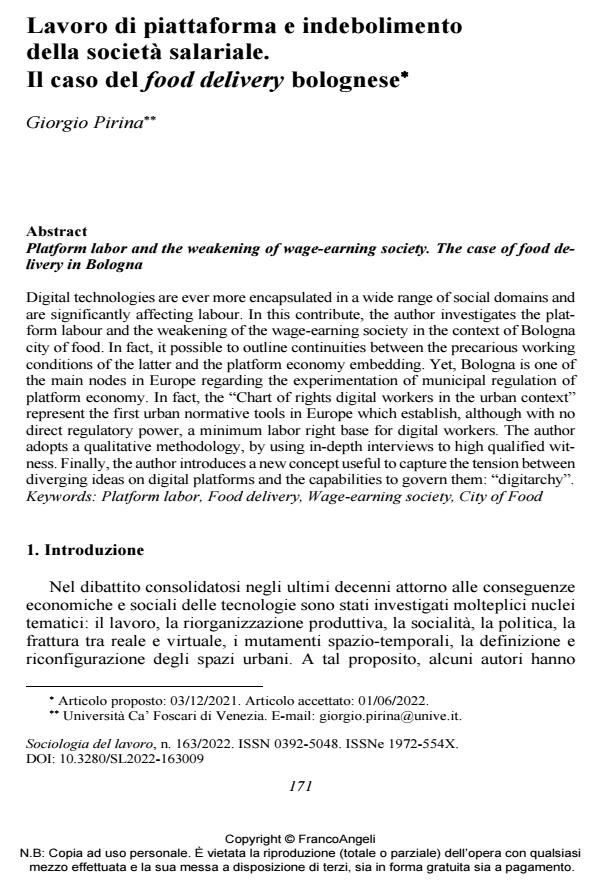Platform labor and the weakening of wage-earning society. The case of food delivery in Bologna
Journal title SOCIOLOGIA DEL LAVORO
Author/s Giorgio Pirina
Publishing Year 2022 Issue 2022/163
Language Italian Pages 20 P. 171-190 File size 232 KB
DOI 10.3280/SL2022-163009
DOI is like a bar code for intellectual property: to have more infomation
click here
Below, you can see the article first page
If you want to buy this article in PDF format, you can do it, following the instructions to buy download credits

FrancoAngeli is member of Publishers International Linking Association, Inc (PILA), a not-for-profit association which run the CrossRef service enabling links to and from online scholarly content.
Digital technologies are ever more encapsulated in a wide range of social domains and are significantly affecting labour. In this contribute, the author investigates the platform labour and the weakening of the wage-earning society in the context of Bologna city of food. In fact, it possible to outline continuities between the precar-ious working conditions of the latter and the platform economy embedding. Yet, Bologna is one of the main nodes in Europe regarding the experimentation of mu-nicipal regulation of platform economy. In fact, the "Chart of rights digital work-ers in the urban context" represent the first urban normative tools in Europe which establish, although with no direct regulatory power, a minimum labor right base for digital workers. The author adopts a qualitative methodology, by using in-depth interviews to high qualified witness. Finally, the author introduces a new concept useful to capture the tension between diverging ideas on digital platforms and the capabilities to govern them: "digitarchy".
Keywords: Platform labor, Food delivery, Wage-earning society, City of Food
- La territorialisation conflictuelle de l’économie de plateforme. Une enquête à partir de la « plateformisation » de la livraison de repas dans les villes de São Paulo et Bologne Lucas M. Guide, Giorgio Pirina, Marlène Monteiro, in Brésil(s) /2025
DOI: 10.4000/158wa
Giorgio Pirina, Lavoro di piattaforma e indebolimento della società salariale. Il caso del food delivery bolognese in "SOCIOLOGIA DEL LAVORO " 163/2022, pp 171-190, DOI: 10.3280/SL2022-163009